A 401(k) is the retirement savings instrument of choice for most US workers, and with tax benefits and employer contributions, it could be a great option. So, should you max out your 401(k) and take full advantage of it? We look closely into the pros and cons below.
About 410(k)s
While most folks know what a 401(k) is, let us jog your memory a bit. It is an employer-sponsored retirement plan with tax benefits that many American firms offer to employees.
An agreed-upon percentage is deducted from the employee’s monthly pay and put into an investment account.
The employer might either match this amount or some part of it. Moreover, the amount debited also becomes deductible from income tax.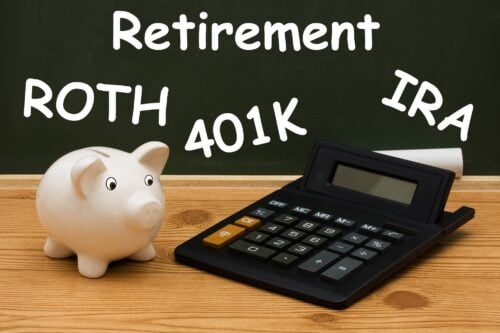 In most cases, this account offers different investment options, the most common being mutual funds and exchange-traded funds.
In most cases, this account offers different investment options, the most common being mutual funds and exchange-traded funds.
The employee needs to choose which one to put their money in.
The fund grows through regular payments and the magic of compounding and hopefully becomes a retirement nest egg in due time.
Starting a 401(k)
To start a 401(k), the first thing to understand is that there are two types – traditional and Roth.
For a Roth 401(k), the contribution amount is taken from the post-tax salary of the individual, whereas the traditional method is to deduct them from the pre-tax earnings.
Consequently, in the second option, you will have to pay taxes on withdrawals.
In a Roth 401(k), the taxes on the invested amount are already paid, and hence no tax is deducted on withdrawal.
One advantage of the traditional method is that it lets 401(k) contributions be treated as deductions to taxable income, which may benefit your current tax bill.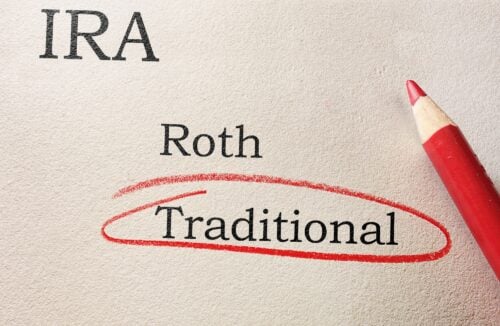 It is important to note that the traditional 401(k)s are more widely available. Many employers do not offer Roth 401(k)s.
It is important to note that the traditional 401(k)s are more widely available. Many employers do not offer Roth 401(k)s.
After choosing the type of 401(k), the next step is to select specific investment plans for the fund.
Most employers offer a bouquet of equity and bond mutual funds and target-date funds. Some may also include guaranteed investment contracts (GICs) from major insurers.
Lastly, a few employers also offer their own stock as part of 401(k) investments.
The next step is to start contributing to the 401(k).
This usually involves an agreed monthly deduction from the paycheck up to a maximum limit set by the Internal Revenue Service (which we discuss in the next section).
Some employers might also offer matching contributions (partially or fully) to what the employee is putting into the fund based on various calculations.
For example, an employer might match 40% of employee contributions up to a certain limit.
If this is applicable, every financial advisor would suggest investing at least the minimum required to maximize the employer match because it is free money for you.
Contributions are added to the 401(k) fund every month until you leave the firm or reach 59 ½ years of age.
How Much Does It Take to Max Out Your 401(k) Annually?
In 2022, the maximum amount an employee can contribute to a traditional 401(k) is $20,500 per annum for those aged below 50 years.
An additional $6,500 catch contribution is also allowed for those who are older.
Note that the maximum one can contribute changes periodically and is linked to inflation. For example, the same amount in 2023 will be $22,500 for those under the age of 50, with an additional catch-up contribution of $7,500 for those above.
For example, the same amount in 2023 will be $22,500 for those under the age of 50, with an additional catch-up contribution of $7,500 for those above.
It is also possible to contribute more than this amount to the fund through employer contributions or additional contributions from post-tax income.
The maximum allowed total contribution (employer + employee) is $61,000 per annum, aside from the additional $6,500 from those who are above age 50.
For 2023, this number will go up to $66,000 per year, excluding the extra $6,500 allowed to those older than 50.
Should I Max Out My 401(k)?
While one can certainly try to max out their 401(k), the decision to do so should first consider things like salary, expenses, monetary obligations, and financial goals.
Two things that one should definitely address before attempting it are:
- Fulfilling any debt obligations
- Keeping aside enough money for contingencies
Additionally, putting all eggs in one basket may not be a great idea anyway. Smart investors could get better returns through other asset classes.
Lastly, for most workers in America, maxing out their 401(k) is in itself no mean feat. Only about 14% did it in 2021, as per a Vanguard study.
Why You Might Want to Hold Off on Maxing Out Your 410(k)
Before maxing out a 401(k), assess your financial situation and ensure that there is enough to cover your current needs and obligations.
Make a list of expenses, any loans currently being paid off, and how much contingency funds should be kept aside every month.
After removing all of these, the remaining amount might be safe to invest in a 401(k).
Penalties for Withdrawing Early
The penalty for an early withdrawal of funds (before reaching the age of 59 ½ years) from a 401(k) is an additional 10% tax on the amount.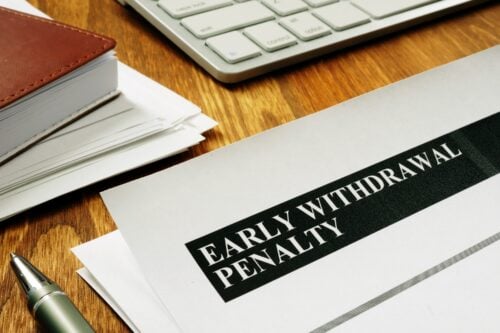 Since a 401(k) is a retirement account meant for long-term savings, the government penalizes using the money earlier.
Since a 401(k) is a retirement account meant for long-term savings, the government penalizes using the money earlier.
Apart from this, there are a few employers that have a vesting schedule on the 401(k) account.
This simply means that the employee needs to work with the company for a certain number of years before they can gain full access to their 401(k).
Vesting schedules effectively lessen the amount that can be taken out.
For example, consider a case where an employer vests only 10% of an employee’s 401(k) for every year of service, up to 10 years.
This means that if you have spent three years with the employer, only 30% of the 401(k) fund can be retrieved.
If the total contribution till now was $30,000, then you are only eligible to get up to $9,000 ($30,000 x 30%).
On top of this, the government will tax whatever is withdrawn at a 10% rate, further reducing it by $900.
Hence the amount remaining would only be $8,100 despite having accumulated $30,000.
Related: States With No Taxes On Retirement Income
Why It Might Be Time To Rethink Retirement Investing
Penalty Exemptions
The taxation penalty on early withdrawal is exempted in certain cases where the individual has a dire need due to personal hardship.
One of the main situations where this is allowed is if the account owner agrees to take “substantially equal periodic payments” against the fund.
This is applicable after leaving the job and stipulates that the employee will take nearly equal payments for at least five years (or till you hit 59 1/2 years of age).
There are several conditions that are applicable in this scenario. Hence, talk to a certified financial planner if you consider opting for it.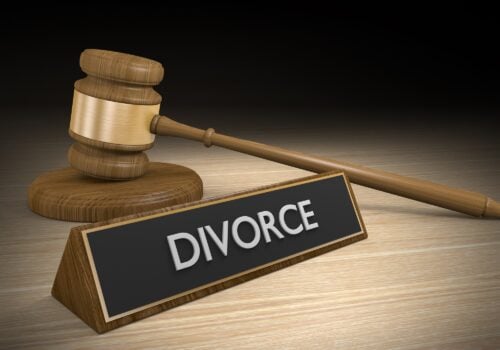 Some of the penalty exemptions include:
Some of the penalty exemptions include:
- If the 401(k) needs to be divided due to a divorce settlement
- Quitting the job after 55 years of age. (50 for federal law enforcement, customs, federal firefighting, air traffic control, or border protection)
- Disability
- Posthumous payments to a beneficiary or estate after your death
- Childbirth or adoption (the exemption is limited to $5,000 per account)
- Natural disasters for which the IRS has granted relief
- Call to active duty for a military reservist
- Using the money to pay off a levy by the IRS themselves
- Overcontribution to the 401(k) account or opting out of an undesired auto-enrollment
- Rolling over the 401(k) to a different retirement plan
Out of these, the last two conditions are subject to certain time limitations.
What Should You Consider Before Maxing Out Your 401(k)?
While 401(k) plans offer the dual benefit of long-term compounding and tax savings, it is important to set aside funds for important expenses before maxing them out.
Here are a few things to consider:
Have An Emergency Fund Ready
401(k) funds are earmarked for retirement income; hence, there is a penalty for withdrawing funds from them. They are ideally not meant for personal emergencies.
For example, during a job loss or a medical mishap, one might have to pay regular expenses like food, groceries, electricity, rent, and clothing out of pocket.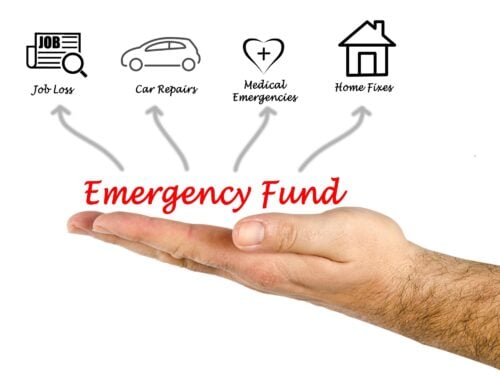 To this end, some money that can be accessed at all times should always be set aside.
To this end, some money that can be accessed at all times should always be set aside.
An additional savings account where you deposit a regular monthly amount might be a good way to create such a fund.
The emergency fund should ideally have enough money to cover living expenses for at least three months (for singles) and six months (for those with a family and children).
Pay Off High-Interest Debts
If any of your current debt obligations demand a higher interest rate than the return you are making on the 401(k), it would be best to first service the mortgage instead.
Typically, credit cards are the worst culprit for high-interest debt, but housing and car loans can also be pretty expensive.
You need to study the penalty structure of these debts and keep enough money to make the monthly payments.
Once the loan is repaid, the money can be redirected to a 401(k).
Consider a Health Savings Account (HSA)
A health savings account can help bring down healthcare costs, which can quickly become a big part of your monthly expenses if not carefully planned for.
The IRS allows contributions to health savings accounts (HSAs) up to a maximum limit of $3,650 (as of 2022) from pre-tax income for individual plans.
For family plans, this limit goes up to $7,300. HSA funds can cover qualified out-of-pocket expenses such as doctor visitation fees and prescriptions.
HSA funds can cover qualified out-of-pocket expenses such as doctor visitation fees and prescriptions.
This money becomes tax-free for qualified medical expenses if it remains in the account until you are 65 years old.
Hence even if unused, the money can become another (indirect) retirement corpus.
Related: The 9 Best Healthcare Penny Stocks To Buy Now
Budget for Potential Big Spends
Maxing out your 401(k) may inadvertently cut out money from other long-term plans, such as buying a house or funds for children’s education.
These expenses are equally important and should not be ignored.
It might be better to first keep aside enough money for these needs and then consider putting anything that remains towards 401(k) contributions.
Alternatives to 401(k)
401(k) plans are unavailable to nearly 40% of US workers.
For such employees, it is important to consider other means of achieving retirement goals. Below are a few possible alternatives.
Traditional IRA
A traditional IRA is an investment account where contributions are tax-deductible up to a defined limit. Moreover, the earnings from the account are also tax-deferred.
IRAs are quite similar to 401(k)s. Withdrawals before 59 1/2 years of age are subject to a 10% tax penalty, and qualified withdrawals get taxed at regular income tax rates.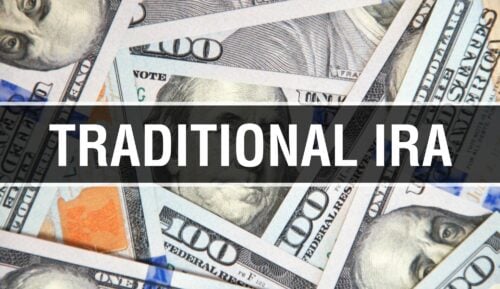 Unfortunately, the maximum contribution is capped at $6,000 with a $1,000 additional catch-up contribution for those above 50 years of age. This is much lower than a 401(k).
Unfortunately, the maximum contribution is capped at $6,000 with a $1,000 additional catch-up contribution for those above 50 years of age. This is much lower than a 401(k).
For Traditional IRAs, you also need to take the required minimum distributions (RMDs) after reaching the age of 72.
Investing Account
An investing account is a simple brokerage account for trading various financial assets.
If you don’t have access to a 401(k), invest directly in funds, equities, and bonds that appeal to you.
Do not simply accumulate money in savings because inflation will eat away at them, and the money will not grow.
However, compared to a 401(k), the earnings might be slower because all capital gains, dividends, and interests earned are taxable.
Moreover, there is no deduction available for this kind of saving.
Real Estate
Buying a property (typically on a mortgage) and leasing it out for rent is another way to raise a retirement fund.
After paying out the loan, the rent becomes a regular income in your later years.
Moreover, the value of the real estate might also appreciate, in which case it can be sold, and the profit can be invested elsewhere. There are several caveats to this investment strategy. Buying and maintaining a house requires a lot of time and money from the homeowner.
There are several caveats to this investment strategy. Buying and maintaining a house requires a lot of time and money from the homeowner.
There is no guarantee of returns, especially if the property remains vacant for a long time or the prices in the area do not appreciate due to a lack of development work.
Is a 401(k) Worth It?
While a 401(k) is a good way to set aside money for retirement savings, it has drawbacks.
401(k) contributions work on the principle of dollar cost averaging, which assumes that regularly investing a fixed amount will reduce the average cost of buying.
However, this is not always true. Your investment may, in fact, be overvalued at the time it is made during the month.
Another problem is that a 401(k) investment horizon is very long, and there is a considerable penalty for early withdrawal.
Lastly, managing a 401(k) has several costs, such as participant fees, account fees, fund expenses, and supplemental asset-based charges, which might reduce the gains from the plan.
Final Thoughts
Given its advantages, like tax deductions and employer contributions, it could be worth maxing out your 401(k).
However, before attempting to do this, think about other financial obligations that you might have.
For example, it is important first to pay mortgages on any loans with high-interest rates; otherwise, they will burn a huge hole in your pocket with penalties and charges.
Similarly, setting aside a contingency fund for emergencies is important because withdrawing funds from a 401(k) before 59 1/2 years of age invites penalties.
Lastly, there are many US workers who simply don’t have access to a 401(k).
For such employees, other options are available, like getting a traditional IRA or investing directly in funds of your choice through a brokerage account.
You might also like:
Looking To Retire? These 6 Stocks Can Help Generate Regular Income
The 10 Best Monthly Dividend Stocks For Income Investors
What Are The Biggest Mistakes People Make When Investing for Retirement? Experts Explain

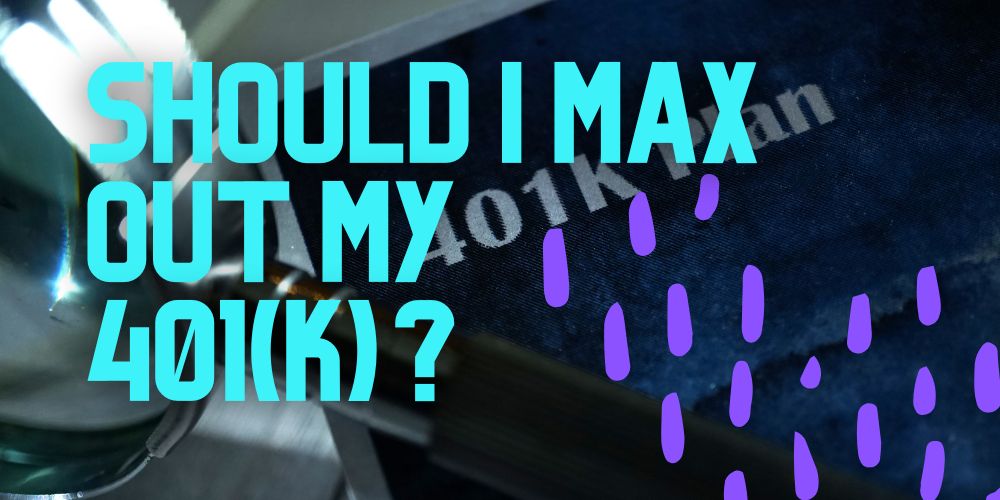
 Tags:
Tags:










